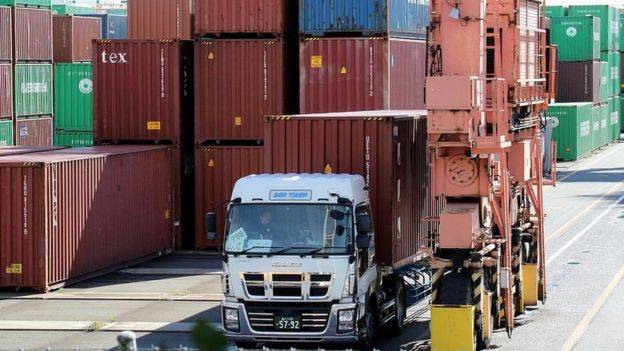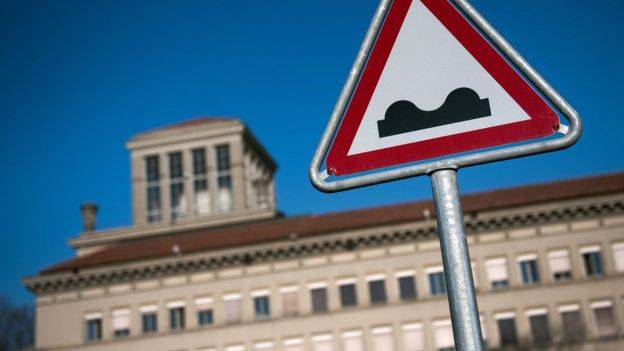Here we are with a discussion on international trade. I wonder how many myths people hold dear about how the President views the trade deals and what his supporters and opponents say that just does not hold up to scrutiny \
The Clean Debate Zone is to be used for the clean debating of Government Policies, Candidates, Current News and Events ONLY. No personal attacks, name calling, flaming etc is allowed in this section.
The full interview: President Obama defends the TPP | Marketplace.org
The Clean Debate Zone is to be used for the clean debating of Government Policies, Candidates, Current News and Events ONLY. No personal attacks, name calling, flaming etc is allowed in this section.
The full interview: President Obama defends the TPP | Marketplace.org
Ryssdal: Last time we talked, I pushed you a little bit on how jobs inevitably when trade agreements get done, they inevitably go away...
Obama:I think the starting point is skepticism when it comes to trade, because the story that people associate with trade — the story I associate with trade, I mean, remember I’m a progressive Democrat who came out of a —
Ryssdal: I remember.
Obama: — manufacturing state and saw plants close down in small towns, and people who had worked there all their lives suddenly are left in the lurch. So I’ve seen the negative effects of trade, but the argument that I’ve made, and I make this especially to my union friends because they support me on everything else but on this one —
Ryssdal: Yeah, they talking to you on this one?
Obama: — we have a difference. What I‘ve said to them is that companies in the United States who are pursuing a low-wage strategy and have decided that the way for us to compete and make a profit is to find the lowest wages possible, they’ve already left. They’re already gone.
And the question now becomes, how do we position ourselves so that we don’t lose in the future? This trade deal doesn’t make up for all the offshoring that’s happened over the last 20, 30 years. I’m the first one to acknowledge that. But I can tell you that under my administration, manufacturing has grown faster than any time since the 1990s. And that’s not just autos, that’s across sectors...
We’re not going to bring back all the manufacturing jobs that were lost. The economy is dynamic and is changing. More of it is in the service sector than it used to be. Unions have become weaker, and, frankly, companies have moved to a much more short-term approach to quarterly profits as opposed to long-term investment. All those trends have conspired to make it tougher on a lot of middle-class families, and the way to reverse that is to invest in education, invest in things like infrastructure that can’t be exported, train our workers so that they continue to be the best in the world, make sure we’re investing in research and development so that we can continue to innovate..."
What I say to them is, "Well, we should have learned some lessons from NAFTA, and in fact that’s what we’ve done, which is why now we have enforceable environmental provisions and enforceable labor provisions." And as I said before, Vietnam is not going to suddenly have the same standards that we do. Malaysia is not going to suddenly enforce environmental provisions exactly the way we do, but we will have raised the bar for them, and if in fact they have these higher standards, which means that they have responsibilities and costs for operating in those countries that are higher than they currently are, then I’m confident that we can compete and we will continue to see insourcing of jobs moving here, moving back. What we can’t do is think that somehow, if we draw a moat around this country, that we’re going to be able to avoid globalization and technology, because frankly when you look at job loss and lost leverage, automation and technology has probably contributed more than trade has to that problem. The anxieties are real, the concerns are real, but the prescription is not for us to try to look backwards. The prescription here is for us to look forward, and that’s what this trade deal does.
Ryssdal: Mr. President, thanks very much for your time, sir.
Obama: Great to talk to you, Kai. Thank you, always a pleasure.
Featured in: Marketplace for Tuesday, October 6, 2015
Obama:I think the starting point is skepticism when it comes to trade, because the story that people associate with trade — the story I associate with trade, I mean, remember I’m a progressive Democrat who came out of a —
Ryssdal: I remember.
Obama: — manufacturing state and saw plants close down in small towns, and people who had worked there all their lives suddenly are left in the lurch. So I’ve seen the negative effects of trade, but the argument that I’ve made, and I make this especially to my union friends because they support me on everything else but on this one —
Ryssdal: Yeah, they talking to you on this one?
Obama: — we have a difference. What I‘ve said to them is that companies in the United States who are pursuing a low-wage strategy and have decided that the way for us to compete and make a profit is to find the lowest wages possible, they’ve already left. They’re already gone.
And the question now becomes, how do we position ourselves so that we don’t lose in the future? This trade deal doesn’t make up for all the offshoring that’s happened over the last 20, 30 years. I’m the first one to acknowledge that. But I can tell you that under my administration, manufacturing has grown faster than any time since the 1990s. And that’s not just autos, that’s across sectors...
We’re not going to bring back all the manufacturing jobs that were lost. The economy is dynamic and is changing. More of it is in the service sector than it used to be. Unions have become weaker, and, frankly, companies have moved to a much more short-term approach to quarterly profits as opposed to long-term investment. All those trends have conspired to make it tougher on a lot of middle-class families, and the way to reverse that is to invest in education, invest in things like infrastructure that can’t be exported, train our workers so that they continue to be the best in the world, make sure we’re investing in research and development so that we can continue to innovate..."
What I say to them is, "Well, we should have learned some lessons from NAFTA, and in fact that’s what we’ve done, which is why now we have enforceable environmental provisions and enforceable labor provisions." And as I said before, Vietnam is not going to suddenly have the same standards that we do. Malaysia is not going to suddenly enforce environmental provisions exactly the way we do, but we will have raised the bar for them, and if in fact they have these higher standards, which means that they have responsibilities and costs for operating in those countries that are higher than they currently are, then I’m confident that we can compete and we will continue to see insourcing of jobs moving here, moving back. What we can’t do is think that somehow, if we draw a moat around this country, that we’re going to be able to avoid globalization and technology, because frankly when you look at job loss and lost leverage, automation and technology has probably contributed more than trade has to that problem. The anxieties are real, the concerns are real, but the prescription is not for us to try to look backwards. The prescription here is for us to look forward, and that’s what this trade deal does.
Ryssdal: Mr. President, thanks very much for your time, sir.
Obama: Great to talk to you, Kai. Thank you, always a pleasure.
Featured in: Marketplace for Tuesday, October 6, 2015



